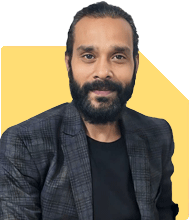MBBS Graduate Seeking Work in Australia: What Are the Financial Implications?
Dr Pananjay K Tiwari | Answer |Ask -Follow
Study Abroad Expert - Answered on Jan 14, 2025
They also guide PhD students who are studying internationally with their research.
Dr Pananjay has 21 years of academic and research experience and has published several books and research papers in various Indian and international journals.
He is a gold medallist with a master’s degree in science and a PhD in environmental sciences from the Hemvati Nandan Bahuguna Garhwal Central University, Uttarakhand.... more

Appox. expindure after mbbs to work in Australia
After completing MBBS, the approximate expenditure to work in Australia includes fees for exams like AMC Part 1 (~AUD 2,920) and AMC Clinical (~AUD 3,800). Additional costs include English proficiency tests (IELTS/OET), visa processing fees, and living expenses during internships or bridging programs. Overall, expenses can range between AUD 10,000–20,000, depending on individual circumstances and preparation needs.
You may like to see similar questions and answers below
Sushil Sukhwani | Answer |Ask -Follow
Study Abroad Expert - Answered on Jun 15, 2023
Sushil Sukhwani | Answer |Ask -Follow
Study Abroad Expert - Answered on Apr 20, 2024
Sushil Sukhwani | Answer |Ask -Follow
Study Abroad Expert - Answered on Aug 20, 2024
Dr Nagarajan J S K |2575 Answers |Ask -Follow
NEET, Medical, Pharmacy Careers - Answered on Nov 10, 2024
Ulhas Joshi |280 Answers |Ask -Follow
Mutual Fund Expert - Answered on Dec 05, 2025
Dr Dipankar Dutta |1835 Answers |Ask -Follow
Tech Careers and Skill Development Expert - Answered on Dec 04, 2025
Ravi Mittal |676 Answers |Ask -Follow
Dating, Relationships Expert - Answered on Dec 04, 2025
Anu Krishna |1745 Answers |Ask -Follow
Relationships Expert, Mind Coach - Answered on Dec 04, 2025
Anu Krishna |1745 Answers |Ask -Follow
Relationships Expert, Mind Coach - Answered on Dec 04, 2025
Mayank Chandel |2562 Answers |Ask -Follow
IIT-JEE, NEET-UG, SAT, CLAT, CA, CS Exam Expert - Answered on Dec 04, 2025
Mayank Chandel |2562 Answers |Ask -Follow
IIT-JEE, NEET-UG, SAT, CLAT, CA, CS Exam Expert - Answered on Dec 04, 2025
Mayank Chandel |2562 Answers |Ask -Follow
IIT-JEE, NEET-UG, SAT, CLAT, CA, CS Exam Expert - Answered on Dec 04, 2025
Mayank Chandel |2562 Answers |Ask -Follow
IIT-JEE, NEET-UG, SAT, CLAT, CA, CS Exam Expert - Answered on Dec 04, 2025
Mayank Chandel |2562 Answers |Ask -Follow
IIT-JEE, NEET-UG, SAT, CLAT, CA, CS Exam Expert - Answered on Dec 04, 2025


























